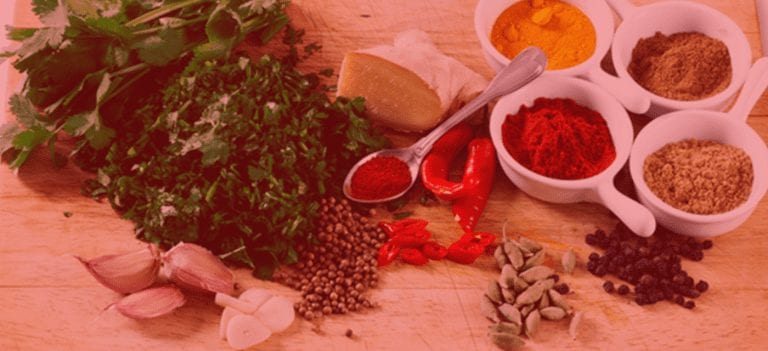Can I Improve My Heart Health with Garlic & Turmeric?
February 5, 2018

Are you really what you eat, like your mother always told you? In general, the foods you eat can certainly make a difference in how you feel now and the health of your body overall. However, is there reason to believe that certain foods can have a direct impact on specific aspects of your health? Some people believe that common household ingredients—like garlic and turmeric—can have an impact on heart health (they even add them to lattes and teas!). But how much of this is medicine that you can rely on?
Garlic’s Effects on Heart Health
According to the CDC, heart disease continues to be the leading cause of death for both men and women in the US, and it is a major cause of death throughout the world. Since February is American Heart Month, it’s time to start thinking about how you can reduce your risk of heart disease—your diet is a great place to start! Garlic contains a sulfur compound known as allicin that is formed when garlic cloves are crushed, chewed, or chopped. Allicin is responsible for most of the health benefits you reap from garlic.
Clinical studies have shown that garlic/allicin can have a wide range of health benefits, many of which are specific to your heart health. One way garlic can help your heart health is by improving your cholesterol levels—lowering both the total level and the LDL (or “bad cholesterol”) number. If you already have high cholesterol, supplementing with garlic could reduce your LDL and total cholesterol by as much as 10 to 15 percent.
Incorporating more garlic into your diet can be easy! Try adding chopped cloves to sautéed greens such as broccoli, kale, and spinach. Potatoes can be roasted with whole garlic cloves and then sprinkled with your favorite seasoning, and crushed or chopped garlic goes great with almost all Italian dishes.
From reducing blood pressure to lowering levels of bad cholesterol, the health advantages of adding more garlic to your diet can aid in the prevention of heart disease and heart-related conditions, such as a heart attack.
Turmeric’s Effects on Heart Health
Native to India and Southeast Asia, turmeric is a bright yellow spice that has long been used for both medicinal purposes and flavoring food. Turmeric contains a compound called curcumin, which is the spice’s main ingredient. Studies have shown that curcumin serves as a powerful antioxidant and anti-inflammatory. Since inflammation is a strong component in so many conditions, especially heart disease, the anti-inflammatory properties of curcumin make it a great addition to any heart healthy diet.
Luckily, turmeric pairs great with many dishes! Add it to scrambled eggs, roasted veggies, rice, sautéed greens, soup, and more. You can also get creative by blending the spice into smoothies, or simmering with coconut milk for a homemade tea.
What is important to keep in mind when considering incorporating more turmeric into your diet is that it can be tough to reap the benefits through food alone. Though curcumin is the main active ingredient in turmeric, its naturally-occurring content is not all that high—around 3% by weight. To get the full effect, or if you already are at risk for heart-related conditions, you may want to consider taking an extract or supplement that contains significantly higher amount of curcumin.
While the jury may still be out on some other food and health trends, it’s safe to say that there is enough initial evidence to suggest there is merit to the health benefits brought on by supplementing your diet with garlic and turmeric on a regular basis. Most importantly, this practice could help you protect your heart for the long haul!
